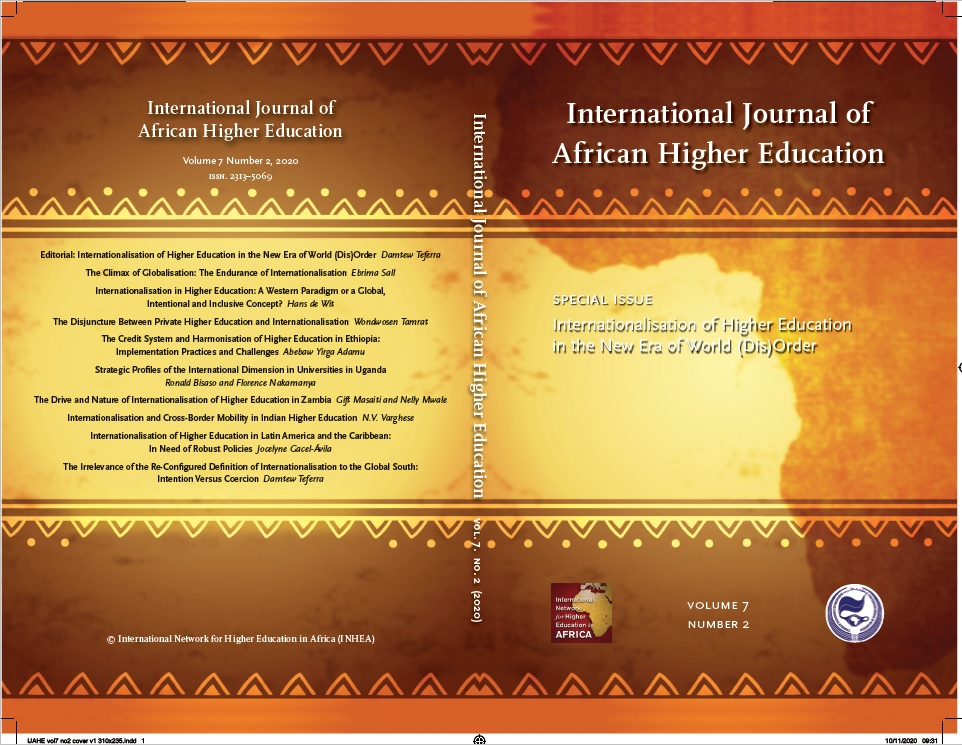The Irrelevance of the Re-Configured Definition of Internationalisation to the Global South:
Intention Versus Coercion
DOI:
https://doi.org/10.6017/ijahe.v7i2.12905Abstract
This article argues that the definition of internationalisation as recast by de Wit, Hunter, Howard, and Egron-Polak (2015), which embraced ‘intentionality’ as its key component, is of no relevance to the reality of the Global South. It maintains that contemporary ontological manifestations of the terminology have been appreciably misrepresented, if not wholly distorted, mainly by a passionate, albeit sincere, desire to advance certain ‘good’ intentions, while disregarding others, in the process creating a dissonance between epistemological reality and a paradigmatic trajectory. In his latest argument, de Wit maintained that the definition is “normative and descriptive”, but Teferra countered that it is neither normative nor descriptive but rather prescriptive and coercive. This article argues that this definition requires acceptance of an articulated ‘good’ intention as fundamental to internationalisation. Intentions are as broad and dynamic as they are subtle and complex. Even ‘good’ intentions are subjective and are presumed worthy by a certain sector of society (scholarly or otherwise) for a certain period of time and to a certain extent. Thus, the definition of internationalisation, as it stands, does not concur with these basic tenets of intentions, rendering it somewhat irrelevant to most of the Global South, and quite a number of instances in the Global North.
Downloads
Published
How to Cite
Issue
Section
License
Copyright (c) 2020 Damtew Teferra

This work is licensed under a Creative Commons Attribution-NonCommercial-NoDerivatives 4.0 International License.

